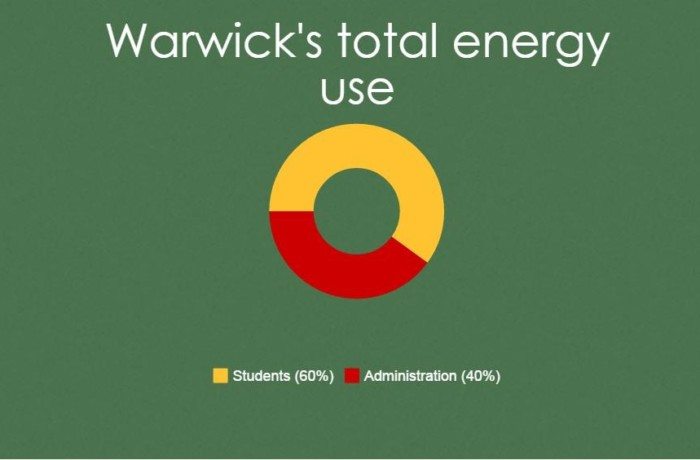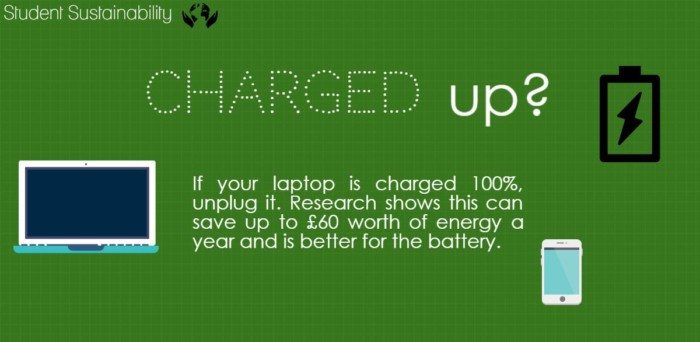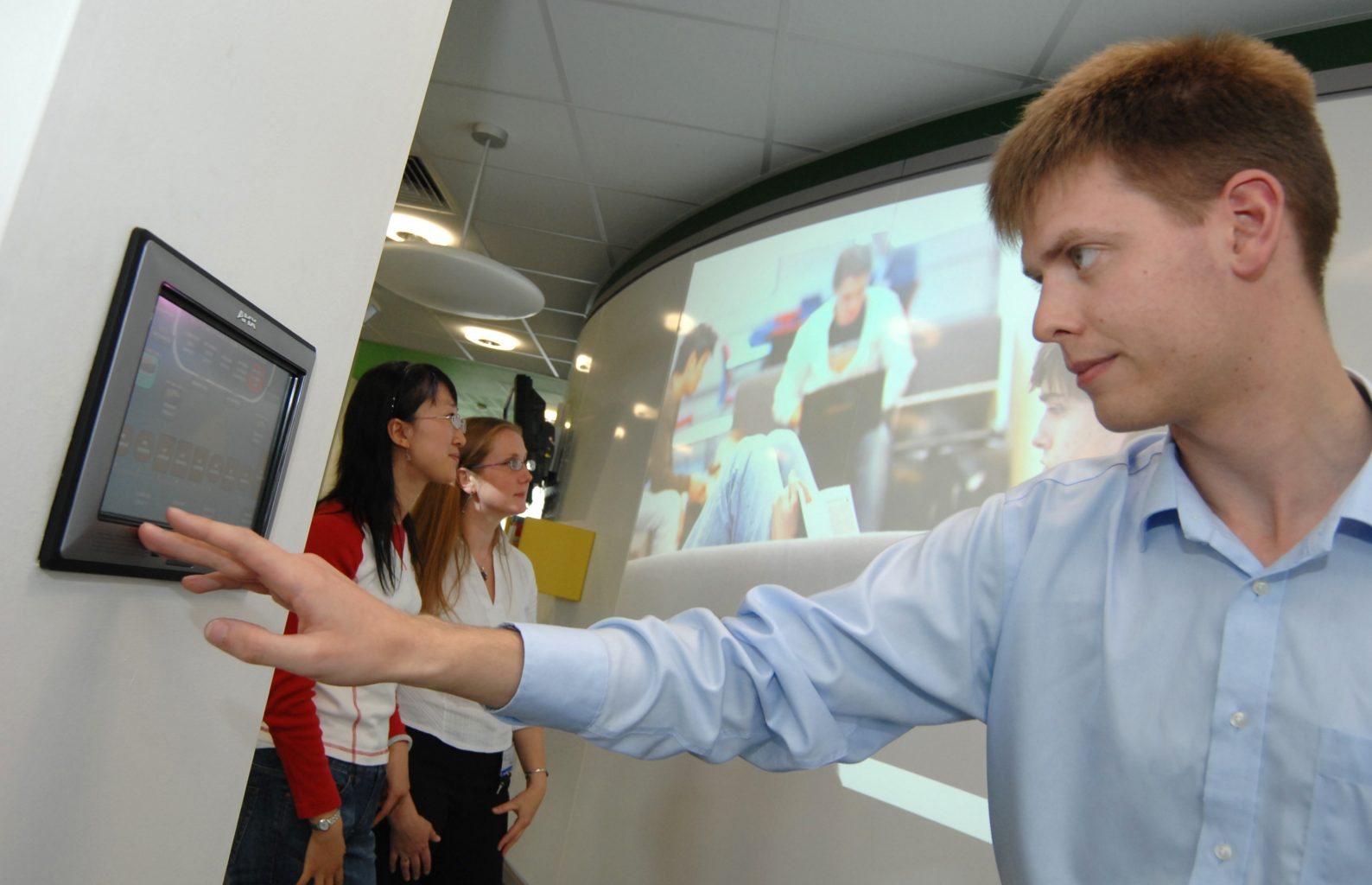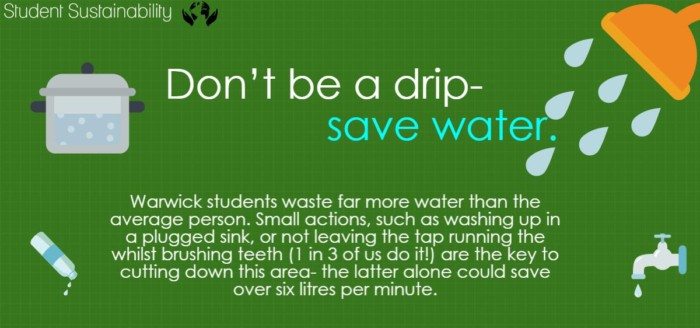Climate change on campus: positive action

With a global political and social climate that seems increasingly hostile to changing economic growth into sustainable development, and the near-certainty that Warwick University will miss its original carbon emissions targets laid out in its 2020 carbon management plan, reverting to despair can be easy. Yet it’s exactly this doom and gloom approach, so frequently dominating discussion surrounding climate change, which must be avoided, as it fails to really engage with the problem. As is frequently the case, the onus for change falls onto those who often feel most powerless: ourselves.
A recent interview with a member of the university’s sustainability team revealed that it actively controls only 40% of the institutions total energy use; the other 60% is determined by us the Warwick community – including us. The responsibility to meet the 2020 plan does not just belong to the administration: part of the projected decrease in emissions was factored in as behavioral and usage change. To put it simply, we are not upholding our end of the deal.
University figures show that for the 2013/14 academic year Warwick students in halls were using 193 litres per person, per day; 43 more than the national average of 150- and that’s excluding campus laundrettes. The financial costs of this excessive water totalled up to bills of roughly £1 million per annum (yes, that’s where your your £9,000 goes). Nevertheless, after a successful ‘Cut the Flow’ campaign (the only of its type at UK universities), the University’s water bill fell sufficiently to cover the installation cost of more wireless remote meters around halls to more accurately measure usage.

That campaign is proof Warwick’s priorities are slowly but surely changing. The showers originally installed in Bluebell used 25 litres of water a minute; these have now been replaced to use an average amount of around 12. The behavioural problem persists however, as Warwick students in halls are still currently using more water than the average person. This situation is perhaps emblematic of the cyclic approach the university needs to take if it is to succeed in making any substantial cuts to its carbon footprint. Behavioural campaigns need to be adequately funded, promoted and distributed through a variety of media by the administration. These then in turn should be received enthusiastically and deemed important by the student body, whilst the subsequent savings are re-invested in further eco-efficient projects.
Warwick is also notable for its strong student-led grassroots campaigns and societies – there are approximately 15 different groups and organisations committed to re-thinking and reducing waste at Warwick, whether that be the Allotment Society growing their own produce, the Blackout campaign hosting termly lights-out events, or newcomers like the Climate Reality Project which are taking a host of actions with the ultimate aim of getting the University to commit to and reach carbon neutrality. All of these societies are keen to take on new members, and hold a ‘Be the Change Fair’ at the beginning of each year. Be sure to check out their social media pages if you’re interested in getting involved.
The showers originally installed in Bluebell used 25 litres of water a minute; these have now been replaced to use an average amount of around 12
It is also worth considering that the university, although coming short of a cohesive, unified effort to meet sustainability targets, has made strides in some areas. A host of courses, including Philosophy, History, Economics, Life Sciences and Theatre and Performance, are now offering new degrees which incorporate Global Sustainable Development into their structure. With the increasing urgency for graduates to be well versed in what is the biggest generational challenge posed to humanity, one can only hope the university will expand this approach so all courses and faculties incorporate some element of sustainability into their teaching.
Senior management has also endeavored to encourage student proactivity in this field, recently raising the amount available to be awarded in its Environmental Sustainability Fund from £3,000 to £5,000, an increase funded through savings made by the Student Switch Off campaign. If you or your friends have a great idea for a project that could help Warwick re-invent its approach to sustainability energy use, be sure to check out the application form and you might be successful.
Senior management has also endeavored to encourage student pro activity in this field, recently raising the amount available to be awarded in its Environmental Sustainability Fund from £3,000 to £5,000
Students can and should also report any faults or improvements they see around campus through the University’s Environment webpage. This is not the only method available; a recent petition on change.org to lower the heating in library was successful in prompting action from the University, saving large amounts of energy and money throughout the year.





Comments